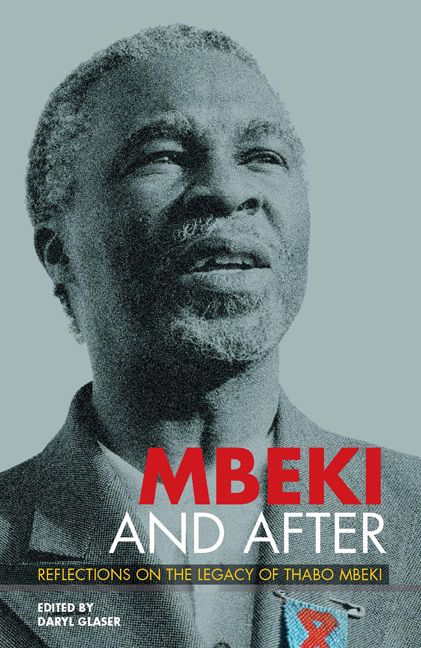10 - Thabo Mbeki and the great foreign policy riddle
from Mbeki Abroad
Published online by Cambridge University Press: 21 April 2018
Summary
‘What shall we do, and how shall we live?’ Max Weber
In one of his many insightful cartoons – this one published in June 1995 – the gifted South African cartoonist, Zapiro, drew four panels under the heading ‘Great Unsolved Mysteries’. Suitably illustrated, three of the four were labelled ‘The Curse of Tutenkamen’, ‘Big Foot’ and ‘The Bermuda Triangle’; the final panel has a quizzical Alfred Nzo, South Africa's first post-apartheid foreign minister, clutching a briefcase with a think-bubble in the form of a question-mark pointing at his head. This panel is labelled, ‘SA foreign policy’. Zapiro's cartoon certainly identifies a central puzzle in post-apartheid South Africa: what is the country's foreign policy?
Any hope of answering the question lies beyond describing its central features or trying to predict its policy response to one or other development. This contrasts with the Cold War, when one-dimensional thinking on foreign policy encouraged analysts to rely on everyday events to explain policy and outcomes. Today, greater theoretical consciousness should encourage scholars of foreign policy to rise above the everyday banalities of media commentary. This methodological legacy points to an issue that needs to be cleared up, if, indeed, this chapter is to add anything to the store of knowledge about South Africa's foreign policy.
Foreign policy analysis has a long and unhealthy relationship with the personality approach to politics. So, efforts to explain foreign policy have been tightly bound into the style and function of the human agent as the primary decision-maker. The logic for this runs as follows: as abstractions states have no agency; only humans (read leaders) can be true agents and ‘it is their agency that is the source of all international politics and all change therein’ (Hudson 2005: 3).
An understanding of and explanation for the foreign policy of South Africa has not been immune from this predisposition. During the Cold War a central feature of the country's foreign policy was that it demonstrated a fealty to the West. This was invariably applauded by Western scholars, who dominated the Western-centred discipline of International Relations. The end of the Cold War terminated the imperative to classify every foreign policy within the East-West divide, although, it must be noted, the acceptance of the norms of ‘sound fiscal management’ in the post-Cold War period must be read as a proxy for Western-oriented foreign policy.
- Type
- Chapter
- Information
- Mbeki and AfterReflections On The Legacy Of Thabo Mbeki, pp. 242 - 262Publisher: Wits University PressPrint publication year: 2009



